



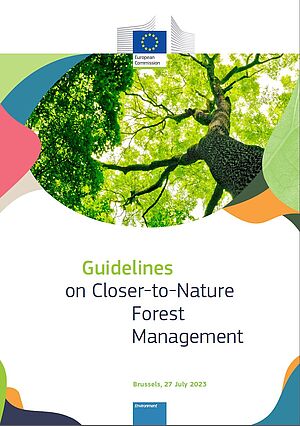

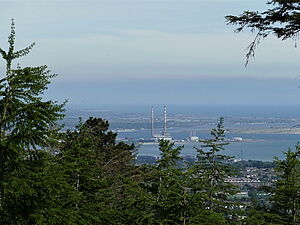
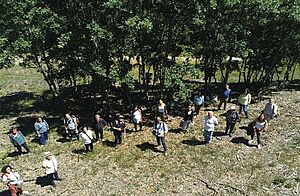
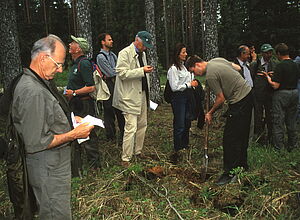

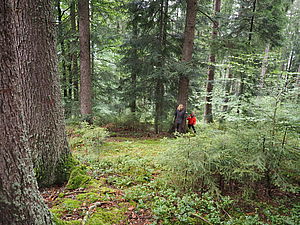
PRO SILVA is a European federation of foresters who advocate forest management based on natural processes. PRO SILVA was founded in Slovenia in 1989.
Based on an expanded approach to sustainability, PRO SILVA presents in the following pages policy statements on issues of major importance to present-day forest management. They invoke a standard of commitment upon forest owners and managing foresters. These issues concern: the basic principles of responsible forest management and forest utilisation, the maintenance of biodiversity, the adaptation to man-made changes to environmental conditions related to the ecologically sustainable use of energy, the use of exotic species, and the ecological role of forests in the landscape.
Together with this emphasis on sustainability, PRO SILVA promotes forest use which follows primarily natural processes. By these means, ecological and economic risks are reduced. These principles are implemented in the PRO SILVA exemplary forest.
PRO SILVA is convinced that it is possible to commence the change from a regimented type of forest management to the type of management and silviculture advocated by PRO SILVA at almost any stage of stand development. Based upon a wide range of stand types, forest conservation, forest protection, management and utilisation have multiple components from conservation to regeneration and amelioration, (forest preservation mitigating the consequences of past management, silvopastoral management slash (brash) disposal, stump and whole tree removal, forest restoration, tree mixture regulation, wildlife management, and others)
Pro Silva supports the implementation of such management in the following ways:
These policy statements are the result of many discussions held among members of the Board of PRO SILVA Europe. The objective of these policies is to increase the benefit derived from the forest, by present and future generations.
(C) Copyright 2012
PRO SILVA. is registered at the court in Molsheim, France. - Adressz : Truttenhausen – F 67140 Barr. - under President: J.-Ph. Schütz, Brüggliäcker 37, CH 8050 Zürich, Swizzerland 2012
PROSILVA promotes forest management strategies which optimise the maintenance, conservation and utilisation of forest ecosystems in such a way that the ecological and socio-economic functions are sustainable and profitable. The general approach to management which is advocated by PROSILVA, includes market and non-market objectives, and takes the whole forest ecosystem into consideration.
With reference to sustainability in its broadest sense PROSILVA believes that forests provide four categories of benefit to society.
These are:
Joa Carvalho translated the priciples to Portuguese language and a native Spanish translated to Spanish language. So now we are able to communicate the PRO SILVA Principles also in South America and Africa (Mosamique, etc.)
The principles of "Pro Silva" were edited 2012 under the chair of Prof. Jean-Philippe Schütz (at that time Prof. for Silviculture at ET Zurich) for all members of Pro Silva all over Europe.
The principles were translated in three languages (French, English, German) and can be downloaded here. - In addition we present the english Version on the website